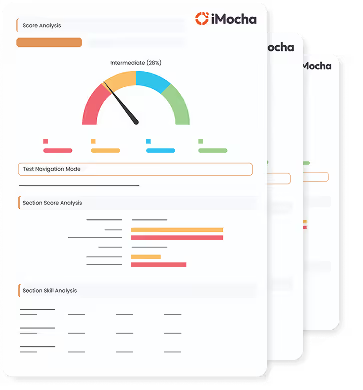


Choose easy, medium, or tricky questions from our skill libraries to assess candidates of different experience levels.
Choose easy, medium, or tricky questions from our skill libraries to assess candidates of different experience levels.

Choose easy, medium, or tricky questions from our skill libraries to assess candidates of different experience levels.

Choose easy, medium, or tricky questions from our skill libraries to assess candidates of different experience levels.
This a comprehensive PDF report, which you can instantly download and share with your hiring team or candidates for seamless collaboration.
Download Sample Report



Utilize this test to assess individuals for roles of a user experience designer, service designer, brand strategist, etc. It can even help you save hiring costs by 45%, and conduct training needs analysis.





%20(1).webp)
What is Design Thinking?
It is a human approach to understanding a consumer's behavior on how the targeted audience engages with the product or service. It is a multi-tier, systematic procedure that includes empathizing with consumers, defining the problem, generating possible solutions, and prototyping and testing the solutions.
Why Choose iMocha?
This skill test is designed according to EEOC guidelines to ensure bias-free talent decisions. Using this test, you can evaluate the candidates' and employees’ problem-solving, creativity, critical thinking, adaptability, and more.
In fact, it also comes with AI-based reporting capabilities to help you assess and rank individuals better.

This assessment helps to screen candidates who possess the following traits:
Furthermore, its proctoring feature ensures individuals take the test under controlled conditions and eliminates cheating risk.







.webp)
.webp)
.webp)
.webp)


